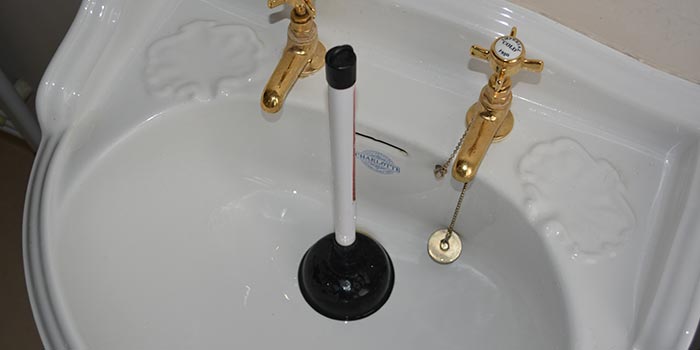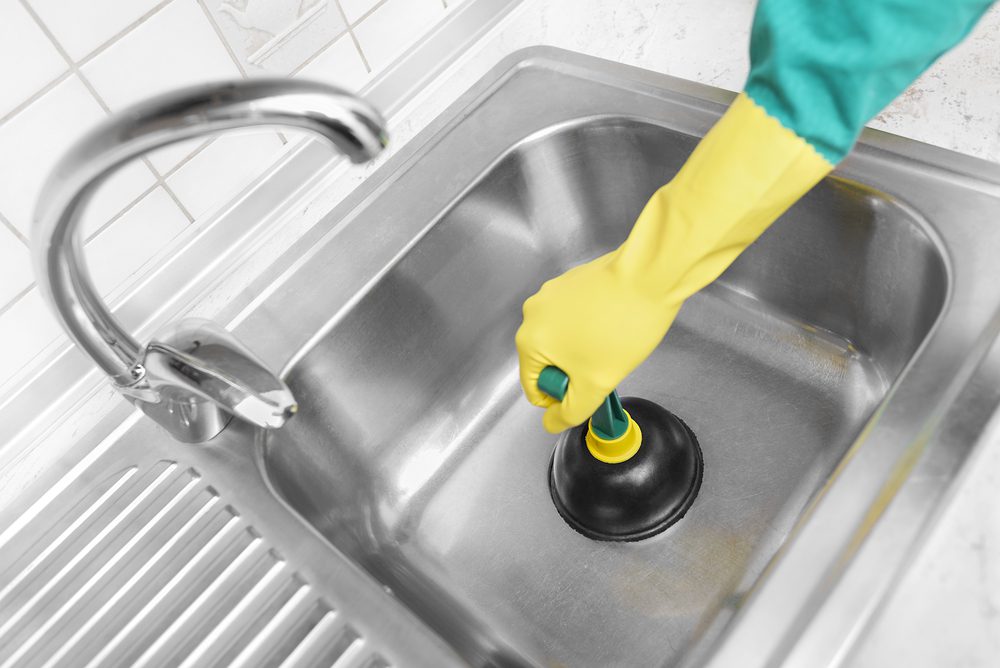Just about every person will have their private rationale on the subject of Solved! How to Fix a Slow Sink Drain.

Intro
We have actually all existed: You're cleaning your teeth or cleaning your hands, and you notice the water pooling in the sink. As opposed to promptly swirling away, it sticks around, transforming your once-refreshing early morning regimen right into a mini overload scene. A slow-draining sink isn't just frustrating; it's frequently a sign of larger plumbing concerns prowling underneath the surface area. The good news is that many slow-draining sinks can be repaired with a little knowledge, a couple of standard devices, and some perseverance. All set to tackle this task head-on? Let's roll up our sleeves and dive right in.
Recognizing the Root Causes Of a Slow-Draining Sink
Before you begin poking around in your pipelines, it assists to know what might be creating the downturn. Recognizing the root cause makes it easier to pick the appropriate repair.
Devices and Materials You'll Need
The right devices make all the difference. The good news is, you will not require a completely stocked plumbing technician's van to finish the job.
Step-by-Step Guide to Fixing a Slow-Draining Sink
Currently, let's enter into the nitty-gritty. This step-by-step process will certainly direct you with easy techniques to restore your sink's drainage.
Step 1: Remove and Tidy the Stopper
Often, the stopper (that tiny plug you lower to obstruct water) is the very first wrongdoer. Remove it very carefully and wipe any hair or substance entraped around its base. Wash it extensively before putting it back in place.
Action 2: Make Use Of a Bettor to Displace Particles
Got that bettor prepared? Placement it over the drainpipe and offer it a couple of company pumps. The idea is to create suction that can loosen up any type of clog. If you see littles particles drifting up, you get on the right track.
Step 3: Try a Drainpipe Serpent or Cable Hanger
If the plunger does not work, it's time to bring out the drain snake. Carefully feed it into the drain and spin as you go. You might really feel some resistance-- that's most likely the blockage. Maintain turning and pulling up until you remove the blockage. If you don't have a drainpipe snake, a straightened cable wall mount can work in a pinch.
Step 4: Apply a DIY Drainpipe Cleaner
An all-natural cleaner made from baking soft drink and vinegar can break down residual gunk. Put half a mug of cooking soda into the drain, adhered to by half a cup of vinegar. Allow it fizz for about 15 minutes, then flush with warm water. This chain reaction typically does marvels for small clogs.
Step 5: Rebuild and Test the Sink
Put whatever back together and run the faucet. Does the water now swirl down the drain at a respectable rate? If yes, offer on your own a pat on the back. Otherwise, don't despair-- there are still a couple of more tricks up your sleeve.
Essential Devices for Do It Yourself Fixes
A plunger is your best starting factor. A tiny, sink-sized plunger creates suction that can displace small obstructions. For more relentless obstructions, a drain serpent (often called a plumbing technician's auger) functions marvels. A set of handwear covers, a flashlight, and perhaps a set of protective safety glasses are also useful.
Advised Cleansing Solutions
Moderate dish soap and hot water can aid break down oily build-up. A combination of baking soft drink and vinegar is a time-tested natural home remedy, and chemical cleansers use an even more environmentally friendly technique. Maintain chemical drain cleaners as a last resource, as they can be severe on your pipes.
Typical Perpetrators Behind Slow Drain
So, what's obstructing points up? Normally, it's a mixture of day-to-day debris-- assume hair, soap residue, toothpaste deposit, and leftover food fragments. Gradually, these tiny bits gather and cling to the pipeline wall surfaces, progressively narrowing the passage and making it harder for water to go through. In many cases, natural resource from tough water can additionally contribute to the substance, creating the ideal storm for persistent clogs.
When is it Time to Do Something About It?
If you observe the water draining slower than common, it's an excellent concept to interfere sooner as opposed to later. Waiting also long could cause finish clogs, unpleasant odors, or perhaps pipe damages. If the water takes greater than a couple of seconds to clean out after switching off the tap, consider it a red flag and prepare to put on your DIY hat.
Security First: Precautions and Prep work
Prior to you launch into unclogging mode, think about security. You're managing potentially dirty water and debris, so slip on a set of gloves. If you're making use of chemical cleansers, make certain the space is well-ventilated and adhere to the directions on the tag.
Safety Equipment and Office Arrangement
Put down some old towels or cloths around the sink area to catch dashes. Clear away any type of things that could get in your way, like soap dispensers or toothbrush owners. Make certain you have great illumination-- order a flashlight if required.
Alternative Approaches for Stubborn Clogs
Not all clogs are created equal. If your sink still declines to cooperate, take into consideration these alternate remedies.
Baking Soda and Vinegar Method
We already discussed this, however it's worth keeping in mind again. This gentle, green method is more secure than chemical cleaners and typically rather effective.
Enzymatic Drainpipe Cleansers
Enzyme-based cleaners utilize all-natural bacteria to absorb raw material. They're an outstanding selection if you're looking to prevent harsh chemicals. Just keep in mind, they may take a bit longer to function their magic.
Chemical Drainpipe Cleaning Company: Pros and Cons
Chemical cleaners can blast through tough blockages fast, but they're not without downsides. They can produce warm and fumes, damage pipes if utilized excessively, and present environmental risks. Use them moderately, and constantly follow the instructions meticulously.
Preventive Measures to Maintain Your Sink Flowing
Avoidance is the best cure. By taking on a few basic behaviors, you can keep your sink from reducing to begin with.
Routine Cleansing Practices
Wipe down the sink basin and fixture location frequently. Remove hair or food bits prior to they have an opportunity to wash down the drain.
Avoiding Dangerous Compounds Down The Tubes
Reconsider prior to discarding coffee premises, oil, or coarse veggie scraps down the sink. These offenders cling to pipeline wall surfaces, developing clogs gradually.
Regular Upkeep Checks
Arrange a fast month-to-month examination. Run warm water with the sink for a few minutes, paying attention to the circulation. If it seems sluggish, act quick before it comes to be a full-on blockage.
When to Call an Expert Plumber
Sometimes, no matter how difficult you attempt, that block simply will not budge. That's when it's time to generate the pros.
Indications That Indicate a Much More Serious Problem
If your sink drains pipes gradually despite multiple attempts, or if you observe water supporting in various other components (like your shower or bathroom), you might have an extra significant pipes concern prowling much deeper in the system.
Balancing DIY Initiatives with Professional Assistance
While do it yourself can save you money and provide a sense of accomplishment, there's no shame in calling an expert. An expert plumbing professional can analyze your entire pipes configuration, making sure there's no underlying damage or lasting issue that could cost you more later on.
Comparing Prices and Long-Term Solutions
Prior to making a decision, consider the big picture. A cheap, quick fix may resolve the trouble temporarily, however investing in a much more irreversible solution might conserve you money and anxiety over time.
Weighing the Expenses of DIY vs. Expert Fixes
DIY repairs frequently set you back bit greater than the cost of a plunger or a bottle of baking soda. Expert solutions, on the other hand, featured a price however may prevent repeated problems and pricey repair services later.
Purchasing Top Quality Fixtures and Upgrades
If your sink's layout contributes to frequent blockages, it may be worth updating to higher-quality fixtures or altering the pipes format. Consider this a financial investment in your house's capability and comfort.
Final thought
A slow-draining sink can feel like a small irritability, yet it's often an indicator that your pipes needs a little TLC. By understanding the root causes, using the right tools and techniques, and devoting to basic preventive measures, you can maintain your sink streaming freely. And when all else falls short, never ever wait to call a professional-- your home's plumbing deserves the investment in care and upkeep.
Three Common Ways to Fix a Slow Drain
Baking Soda Method
Boil a full pot of water. Measure out cup of baking soda and pour it down the drain. Then take cup of the magical cleansing substance known as white vinegar and drop that down there too. Allow the mixture to fizz in the drain for five minutes as the vinegar and baking soda combine. Now dump in that whole pot of boiling water. This combination of cleaning substances should clear out anything that is causing your sink to drain slowly. If it doesn t...
Zip-It
If the baking soda method doesn t clear out your drain, it may be because a significant amount of hair and/or other debris has collected there and you need to remove it. Purchase a Zip-It tool at any home improvement or hardware store and insert it into your drain. It will catch any collected hair or debris that s blocking the flow of water. Pull it out. If it s got a big clump of hair, etc. on the end, you ve probably got your culprit.
Drain Cleaner
If these methods don t work, there is the standard drain cleaner that you can also buy in a hardware store or even your local grocery store. It s better if you can use a household solution, but these drain cleaners often work in a pinch. They re very simple to use. You generally just dump them in your drain and wait. If even this method is not effective, it may be time to call the plumber.
https://www.mrrooter.com/oneida/about-us/blog/2017/july/three-common-ways-to-fix-a-slow-drain/

I ran across that review about 4 Tips to Fix a Slow Draining Sink when exploring the search engines. Sharing is good. Helping people is fun. Thanks a lot for your time invested reading it.
Call Today